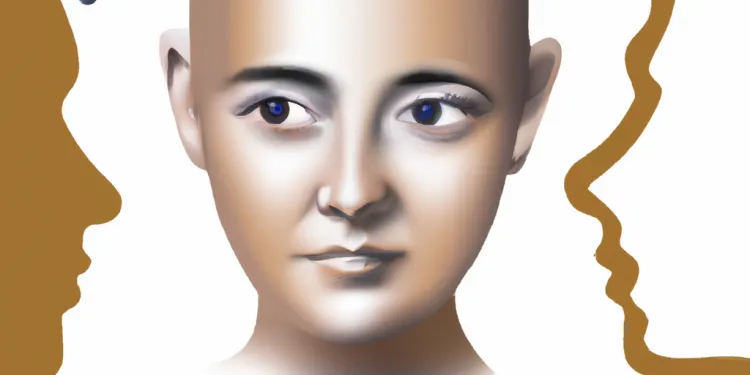
Find A Professional
More Items From Ergsy search
-

Harshi’s learning disability annual health check and health action plan
Relevance: 100%
-

The NHS Long Term Plan for learning disability and autism
Relevance: 96%
-

Dr Hilary Jones on Residential Care PART 2.
Relevance: 87%
-

How are health services provided in prison?
Relevance: 84%
-

Preventative Care: What Your Family Needs
Relevance: 79%
-

Dementia Care at Colten Care
Relevance: 78%
-

Dr Hilary Jones shares his professional and personal thoughts on Colten Care
Relevance: 76%
-

What is end of life care?
Relevance: 74%
-

What is an Education, Health and Care Plan (EHCP)?
Relevance: 74%
-

Are there different types of hip implants?
Relevance: 73%
-

The Different Roles in Sexual Health and Family Planning UK
Relevance: 71%
-

The role of care homes dedicated to caring for people living with dementia and memory loss
Relevance: 70%
-

What is an asthma action plan?
Relevance: 70%
-

Student Finance: Should I pay more? | Plan 1 & Plan 2 | SF Explained
Relevance: 67%
-

Advancements in Mental Health Resources for Families
Relevance: 66%
-

NHS Ayrshire and CVO East Ayrshire - ‘Feet First – Podiatry Services in East Ayrshire’
Relevance: 66%
-

NHS to Expand Digital Health Services to Reduce Appointment Backlogs
Relevance: 65%
-

Are there educational components to the school meal program?
Relevance: 63%
-

Improving outcomes for people with diabetes
Relevance: 63%
-

Can chiropractic care help with arthritis?
Relevance: 63%
-

NHS-led Provider Collaboratives: improving mental health, learning disability and autism services
Relevance: 62%
-

Current Challenges in Youth Mental Health Services
Relevance: 62%
-

Transforming Care for people with Learning Disabilities and/ or Autism: Peter's Story
Relevance: 62%
-

Use of reasonable adjustments to reduce health inequalities for people with a learning disability
Relevance: 61%
-

Navigating Mental Health Services for Children and Adolescents
Relevance: 61%
-

Colten Care values - montage of all 5 short films
Relevance: 60%
-

Chiropractic Care on the NHS
Relevance: 60%
-

What are Healthy Start vouchers in the UK?
Relevance: 59%
-

Are there specific laws governing SEND in schools?
Relevance: 59%
-

Tackling Youth Mental Health: Community Initiatives and Solutions
Relevance: 59%
-

Personal Health: Navigating the NHS for Efficient Care
Relevance: 59%
-

Can children benefit from chiropractic care?
Relevance: 59%
-

Planning for your funeral
Relevance: 58%
-

What support is available for families of individuals with PIMD?
Relevance: 58%
-

NHS Unveils Revolutionary Mental Health Support Initiative
Relevance: 57%
-

Can I get dental implants on the NHS?
Relevance: 57%
-

Mental Health Resources for Families
Relevance: 57%
-

Can funeral directors offer payment plans?
Relevance: 56%
-

Mental Health Support Resources for Families
Relevance: 56%
-

Understanding Mental Health in Children
Relevance: 56%
What is an Education, Health and Care Plan (EHCP)?
An Education, Health and Care Plan (EHCP) is a legal document in the United Kingdom that outlines the education, health, and social care needs of a child or young person with special educational needs and disabilities (SEND). The plan details the support required to meet those needs and achieve desired outcomes, ensuring a coordinated approach to a child’s care and education.
Purpose of an EHCP
The primary purpose of an EHCP is to ensure that children and young people who need additional support receive tailored services that cater to their specific circumstances. It provides a comprehensive overview of their needs and the resources available to assist them. This ensures they can make progress in their education, develop independence, and prepare for adulthood. An EHCP replaces the previous Statement of Special Educational Needs and Learning Difficulty Assessments in England.
Eligibility for an EHCP
Children and young people aged 0-25 years who have a significantly greater difficulty in learning than their peers, or have a disability that affects their ability to access the educational facilities, may be eligible for an EHCP. To determine eligibility, a detailed assessment involving the child, parents, teachers, and various professionals is conducted. The assessment considers the child’s educational progress, health requirements, and any additional support needed.
The EHCP Process
The process begins with a formal request for an assessment from the child’s parents, school, or the young person themselves if over the age of 16. Local authorities have a 20-week timeframe to conduct the assessment and decide whether to issue an EHCP. During this period, existing evidence, observations, and reports from education professionals and other specialists, such as healthcare providers, are gathered and reviewed.
If the local authority decides to issue an EHCP, it will draft a plan that includes input from all parties involved. Parents and young people have the opportunity to review the draft and suggest changes. Once agreed upon, the EHCP becomes a legally binding document that must be reviewed annually to ensure it remains applicable to the child’s evolving needs.
Contents of an EHCP
An EHCP consists of several sections, detailing the child's educational, health, and social care needs; the outcomes expected from the support provided; and a list of the provision to be made, including educational placement and additional services. The plan specifies the child's strengths and challenges, providing a roadmap for targeted interventions and monitoring progress.
Benefits of an EHCP
Having an EHCP ensures that children and young people with SEND receive personalized support, promoting equal opportunities in education and life. By involving professionals from multiple sectors, EHCPs facilitate an integrated, holistic approach to a child's development, addressing educational challenges alongside health and social care needs. This coordinated effort helps children reach their full potential and better prepares them for future stages of their lives.
Frequently Asked Questions
What is an Education, Health and Care Plan (EHCP)?
An EHCP is a legal document that outlines the education, health, and care needs of a child or young person with special educational needs and disabilities (SEND).
Who qualifies for an EHCP?
Children and young people aged 0-25 with significant special educational needs that cannot be met by the support available at their school or college may qualify for an EHCP.
How is an EHCP different from an Individual Education Plan (IEP)?
An EHCP is a formal legal document that provides a broader view covering education, health, and care needs, while an IEP is a school-based document focusing primarily on educational goals.
Who requests an EHCP assessment?
A request for an EHCP assessment can be made by the child's school, parents, or the young person themselves.
What is included in an EHCP?
An EHCP includes detailed information about a child’s educational, health, and social care needs, the desired outcomes, and the support required to achieve them.
How long does it take for an EHCP to be issued?
The process from assessment request to final EHCP issuance should take no longer than 20 weeks.
Can an EHCP be amended?
Yes, an EHCP can be reviewed annually and amended if there are changes to the child's needs or circumstances.
What is an annual review of an EHCP?
An annual review is a meeting held to discuss the child’s progress and whether the provisions in the EHCP are still meeting their needs.
Who is involved in creating an EHCP?
An EHCP is created with input from the child or young person, parents or guardians, education professionals, and health and care services.
What happens if a request for an EHCP assessment is denied?
If a request for assessment is denied, parents or young people can appeal the decision to the Special Educational Needs and Disability Tribunal.
Does an EHCP include funding?
An EHCP outlines the support required, which can determine the allocation of additional funding to meet the identified needs.
How does an EHCP impact school placement?
An EHCP can specify the type of educational setting that is appropriate for the child, which can guide school placement decisions.
Is an EHCP legally binding?
Yes, an EHCP is a legally binding document, meaning the local authority must ensure that the provision specified is delivered.
Does an EHCP include health support?
Yes, an EHCP includes details of any health services required to support the child alongside their educational needs.
How often is an EHCP reviewed?
An EHCP must be reviewed at least once a year to ensure it remains relevant and effective.
Can a young person aged 18-25 have an EHCP?
Yes, young people up to the age of 25 can be eligible for an EHCP if they are still in education or training and have ongoing special educational needs.
What role do parents play in the EHCP process?
Parents play a key role in providing information, supporting the needs assessment process, and contributing to the plan's development.
Can a school refuse to accept a student with an EHCP?
Schools are generally required to accept students if an EHCP indicates they are the right environment, barring exceptions like unsuitable capacity or resources.
What is the role of a Special Educational Needs Coordinator (SENCO) in an EHCP?
A SENCO helps coordinate the development, implementation, and review of the EHCP within a school and liaises with other professionals involved.
What should you do if you disagree with the contents of an EHCP?
If you disagree with the content of an EHCP, you can request a meeting with the local authority to discuss changes or appeal the decision to the Special Educational Needs and Disability Tribunal.
Useful Links
- Ergsy carfully checks the information in the videos we provide here.
- Videos shown by Youtube after a video has completed, have NOT been reviewed by ERGSY.
- To view, click the arrow in centre of video.
- Most of the videos you find here will have subtitles and/or closed captions available.
- You may need to turn these on, and choose your preferred language.
- Go to the video you'd like to watch.
- If closed captions (CC) are available, settings will be visible on the bottom right of the video player.
- To turn on Captions, click settings .
- To turn off Captions, click settings again.
More Items From Ergsy search
-

Harshi’s learning disability annual health check and health action plan
Relevance: 100%
-

The NHS Long Term Plan for learning disability and autism
Relevance: 96%
-

Dr Hilary Jones on Residential Care PART 2.
Relevance: 87%
-

How are health services provided in prison?
Relevance: 84%
-

Preventative Care: What Your Family Needs
Relevance: 79%
-

Dementia Care at Colten Care
Relevance: 78%
-

Dr Hilary Jones shares his professional and personal thoughts on Colten Care
Relevance: 76%
-

What is end of life care?
Relevance: 74%
-

What is an Education, Health and Care Plan (EHCP)?
Relevance: 74%
-

Are there different types of hip implants?
Relevance: 73%
-

The Different Roles in Sexual Health and Family Planning UK
Relevance: 71%
-

The role of care homes dedicated to caring for people living with dementia and memory loss
Relevance: 70%
-

What is an asthma action plan?
Relevance: 70%
-

Student Finance: Should I pay more? | Plan 1 & Plan 2 | SF Explained
Relevance: 67%
-

Advancements in Mental Health Resources for Families
Relevance: 66%
-

NHS Ayrshire and CVO East Ayrshire - ‘Feet First – Podiatry Services in East Ayrshire’
Relevance: 66%
-

NHS to Expand Digital Health Services to Reduce Appointment Backlogs
Relevance: 65%
-

Are there educational components to the school meal program?
Relevance: 63%
-

Improving outcomes for people with diabetes
Relevance: 63%
-

Can chiropractic care help with arthritis?
Relevance: 63%
-

NHS-led Provider Collaboratives: improving mental health, learning disability and autism services
Relevance: 62%
-

Current Challenges in Youth Mental Health Services
Relevance: 62%
-

Transforming Care for people with Learning Disabilities and/ or Autism: Peter's Story
Relevance: 62%
-

Use of reasonable adjustments to reduce health inequalities for people with a learning disability
Relevance: 61%
-

Navigating Mental Health Services for Children and Adolescents
Relevance: 61%
-

Colten Care values - montage of all 5 short films
Relevance: 60%
-

Chiropractic Care on the NHS
Relevance: 60%
-

What are Healthy Start vouchers in the UK?
Relevance: 59%
-

Are there specific laws governing SEND in schools?
Relevance: 59%
-

Tackling Youth Mental Health: Community Initiatives and Solutions
Relevance: 59%
-

Personal Health: Navigating the NHS for Efficient Care
Relevance: 59%
-

Can children benefit from chiropractic care?
Relevance: 59%
-

Planning for your funeral
Relevance: 58%
-

What support is available for families of individuals with PIMD?
Relevance: 58%
-

NHS Unveils Revolutionary Mental Health Support Initiative
Relevance: 57%
-

Can I get dental implants on the NHS?
Relevance: 57%
-

Mental Health Resources for Families
Relevance: 57%
-

Can funeral directors offer payment plans?
Relevance: 56%
-

Mental Health Support Resources for Families
Relevance: 56%
-

Understanding Mental Health in Children
Relevance: 56%